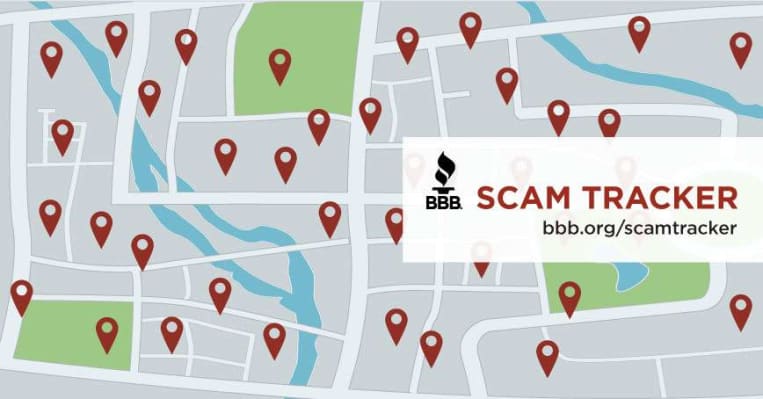
Latest News
BBB's Definitions of scams targeting businesses

Below are some of the most common scams to target businesses. Click here to see scams that target consumers.
To report a scam, visit BBB.org/ScamTracker.
SCAM TYPES |
DEFINITION |
|
BANK/CREDIT CARD COMPANY IMPOSTER
|
This scam typically involves impersonation of a bank or other credit card issuer. Under the guise of verifying account information, con artists try to fool their targets into sharing credit card or banking information. |
|
|
This financial fraud targets businesses engaged in international commerce. Scammers gain access to company email and trick employees into sending money to a “supplier” or “business partner” overseas. |
|
|
Charity scams use deception to get money from businesses that believe they are making donations to legitimate charities. This is particularly common in the wake of a natural disaster or other tragedy. |
|
|
Counterfeit goods mimic original merchandise, right down to the trademarked logo, but are typically of inferior quality. This can result in a life-threatening health or safety hazard when the counterfeit item is medication or an auto part. |
|
|
In this con, the employee deposits a phony check and then returns a portion by wire transfer to the scammer. The stories vary, but the employee is often told they are refunding an “accidental” overpayment. Scammers count on the fact that banks make funds available within days of a deposit but can take weeks to detect a fake check. |
|
|
Scammers attempt to fool employees into paying for products that the business did not order and that may not even exist. Fake invoices are often submitted for office supplies, website or domain hosting services, and directory listings. |
|
|
Scammers impersonating government agents threaten to suspend business licenses, impose fines, or even take legal action if the business doesn’t pay taxes, renew government licenses or registrations, or pay other fees. Sometimes they trick businesses into buying workplace compliance posters that are available for free, or they may pressure them to pay upfront fees for a nonexistent business grant. |
|
|
Cyber scammers trick employees into giving up confidential or sensitive information such as passwords or bank information. It often starts with a phishing email, a social media contact, or a call that seems to come from a trusted source such as a supervisor or other senior employee, but creates urgency or fear. |
|
|
Tech support scams start with a call or pop-up warning that alerts the employee to a computer bug or other problem. Scammers posing as tech support employees of well-known tech companies hassle employees into paying for “support.” If the employee allows remote access, malware may be installed. |
|
|
Scammers pretend to call from a gas, electric, or water company saying the service is about to be interrupted. They will take emotional tactics to scare the employee into believing a late bill must be paid immediately. |
|
|
The business receives a notice indicating that an employee or the business itself has won recognition for an achievement such as a “Best of Local Business Award.” The “winner” may be asked to link to the group’s website to obtain a plaque commemorating the award. |
|
WORTHLESS PROBLEM-SOLVING SERVICE
|
Sometimes scammers claim to be able to provide low-cost solutions to problems they know many businesses have. For example, they might claim they can repair the business’s online reputation or provide quick relief if it’s struggling with debt or back taxes— for an up-front fee, of course. |
|
YELLOW PAGE/DIRECTORY LISTINGS
|
Businesses are fooled into paying for a listing or ad space in a nonexistent directory or “Yellow Pages.” In some cases, the directory technically exists but is not widely distributed and a listing is of little or no value—these directories are essentially props in the scammer’s ploy. |
Related News
Still Need Assistance?
Contact Your Local BBB
Your local Better Business Bureau can assist you with finding businesses you can trust. Start With Trust®.
General Inquiries:
6336-684 (416)
Additional Resources
Central Ohio BBB Business Podcast


